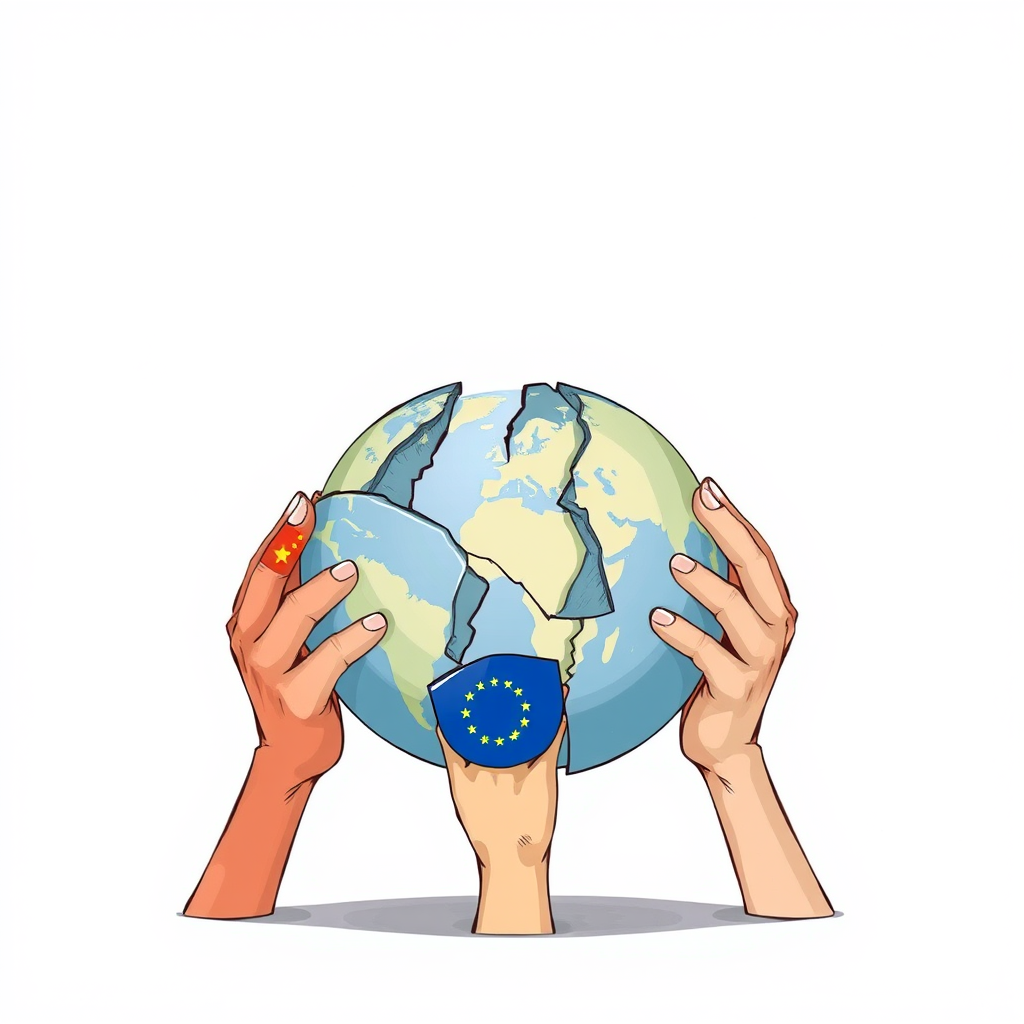China Urges Europe to Resist US Tariffs

China is actively seeking to build a united front against escalating tariffs imposed by the United States, appealing to both the European Union and India for cooperation in the face of what it characterizes as economic “bullying.” This push comes as tensions between Washington and Beijing continue to mount, with both sides implementing increasingly stringent tariffs on imported goods.
President Xi Jinping, during a meeting with Spanish Prime Minister Pedro Sanchez, urged the EU to join China in resisting what he termed “unilateral bullying practices” by the US. This appeal follows similar overtures to India, signaling a strategic effort to forge alliances and counter American trade policies. China’s Foreign Ministry spokesperson, Lin Jian, underscored the futility of trade wars, stating, “Trade wars have no winners,” while simultaneously warning that China is prepared to fully respond to further escalation. Beijing recently announced its own retaliatory tariffs, raising levies on American imports to 125 percent.
The situation stems from President Trump’s imposition of significant tariffs on Chinese goods – currently at 145 percent, including levies related to fentanyl – and a previously suspended 20 percent tax on EU products. While Trump has also announced tariffs on Indian goods, albeit at a lower rate of 26 percent, India has signaled it will not retaliate, opting instead to explore avenues for negotiation under existing trade agreements.
This shift in China’s diplomatic approach is notable. For years, Beijing has largely pursued economic expansion independently. Now, facing substantial tariffs, it’s actively seeking support from other major economies. The Chinese embassy recently called for India and China to “stand together” against US tariffs, a sentiment echoed by President Xi during a meeting with President Droupadi Murmu.
The irony is palpable: decades of strained relations between India and China may be giving way to cooperation, not due to shared interests, but as a direct consequence of US trade policies. While India’s relationship with the US remains strong, Delhi appears willing to explore all options to mitigate the impact of tariffs on its exports.
The current situation presents a complex geopolitical landscape. China’s attempt to rally international support highlights the growing dissatisfaction with US trade policies, but also raises questions about the future of global trade relations. Whether this will lead to a genuine realignment of economic powers or simply a temporary alliance of convenience remains to be seen. However, it’s clear that the escalating trade war is forcing countries to reassess their strategies and seek new partnerships in a rapidly changing world. The US approach, while aiming to level the playing field, risks fracturing the global economic order and pushing nations closer together in opposition. A more nuanced and collaborative approach to trade negotiations would be far more beneficial in the long run.